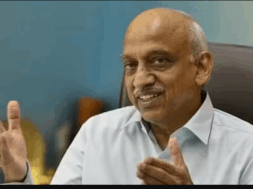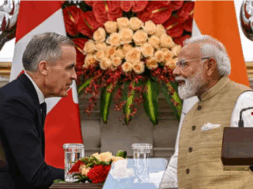
Roving Periscope: Now, China’s Xi regime coaches citizens, and students on ‘how to catch a spy’
Virendra Pandit
New Delhi: Dictators, who usually grab power from others, are invariably suspicious about others—even their henchmen—and hugely insecure and obsessed with their own security. China’s President-for-Life Xi Jinping is no exception.
In a video that went viral in August, the world saw him waiting, and turning his face back twice, for his personal security guards whom South African security personnel had forcibly disallowed entry to the convention hall of the BRICS Summit in Johannesburg.
Helplessly watching his country’s economy go under and his own power slipping away like sand in hand, he has almost stopped traveling overseas—he also skipped the G-20 Summit in New Delhi this month. Increasingly isolated at home, he is sacking anyone he suspects—in the party, the government, the People’s Liberation Army (PLA)—and denouncing them all as “corrupt.” Some months ago, he got arrested over 100,000 such people in one go.
But this one takes the cake: his acolytes are now coaching even students on how to catch spies!
According to recent media reports, as students returned to Beijing’s top universities in early September, they found an ominous addition to their syllabus: a crash course on how to catch spies.
Already, Chinese tourists, professionals, and even students studying in the US, UK, Japan, and other countries have been accused of spying for their country.
Videos circulated in the government-run Tsinghua University instructed teachers and students to become a “defense line” against unspecified ‘foreign’ forces. Beijing University of Technology even organized a national-security-themed garden party.
Students at Beihang University, an aeronautics institution against which the US clamped sanctions for its military links, were even asked to play an interactive training game, called ‘Who’s The Spy?’ “In what special way will the college students around you reinvigorate national security?” the Ministry of State Security (MSS) wrote on its new WeChat account.
The obsession with national security is, actually, linked to protecting the Communist regime’s future. In July, State Security Minister Chen Yixin wrote that national security was about political security. “The core of political security is regime security,” he added.
But this propaganda drive is also creating a deep suspicion of foreigners that runs counter to the Communist Party’s stated aim of wooing investors and reinvigorating the private sector. Foreigners say meeting with once-friendly officials is becoming difficult in this growing atmosphere of suspicion.
President Xi Jinping is also trying to fan xenophobia before his possible invasion of Taiwan to divert the people’s attention from the mounting economic crisis at home. To repel perceived foreign threats to Communist Party rule, Beijing’s message to the public is that ‘spooks are everywhere’ — not just in the universities.
For example, the Henan police urged citizens to quiz neighbors they mistrust on pop culture to ascertain their patriotism, while Shandong province state media published posters with the tagline “spies might be all around you.” Arousing and using ‘collective fear’ to enlist support is an old dictatorial game.
Recently, China passed a new anti-spy law, accusing its own consulting firms of working with foreign intelligence outfits and warning that these alien forces are infiltrating China’s energy sector. In May, Xi chaired a National Security Council meeting, stressing the importance of “extreme-case scenario” thinking.
Last year, the Communist regime was rattled when students led rare nationwide protests calling for the end of Covid Zero —and, in some cases, the removal of Xi.
In the 1980s, the Communist Party unified its intelligence arms to found the Ministry of State Security (MSS), as the sole cabinet-level ministry without an official website. In August, it joined China’s social media app WeChat, posting daily updates on securing national security and telling primary school students what photos they shouldn’t post on social media.
This propaganda is resulting in a growing level of mistrust among citizens in a nation where many still remember the effects of asking citizens to spy on one another. China offers up to 500,000 yuan (USD 68,160) to citizens who successfully report spies.
A hyper-vigilance around spilling sensitive information is growing in the workplace, and state-owned enterprises are running training sessions on state secrets. More documents are being marked as state secrets, and can only be browsed at the office, the report said.
The government has also launched an app to help Communist Party members and government employees bolster their knowledge and skills about secretkeeping.














